Back to Indigenous Awareness page
Recommended sample Land Acknowledgments (ATA)

Back to Indigenous Awareness page
Recommended sample Land Acknowledgments (ATA)
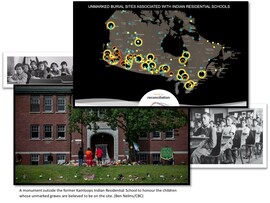
Paths to Reconciliation Canadian Geographic Website and Interactive Map:
UNMARKED BURIAL SITES ASSOCIATED WITH INDIAN RESIDENTIAL SCHOOLS
The information provided in the map is intended to support the recovery work that Survivors, Indigenous families and communities are leading to locate, protect and commemorate the unmarked burials of children.
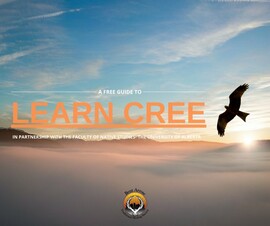
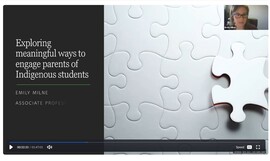
Webinar Wednesday April 27, 2022 Guest Presentation
Emily Milne (PhD), Associate Professor in the Department of Sociology at MacEwan University
Exploring Meaningful Ways to Engage Parents of Indigenous Students
This presentation draws on data from interviews and focus groups with 201 Indigenous students and teachers and parents of Indigenous students connected to one Alberta school division to explore how to engage parents of Indigenous students in meaningful ways.
Specifically, this presentation will consider experiences and perspectives related to family-school interactions as well as promising practices to foster meaningful relationships between Indigenous families and schools, and how this learning can be extended into the work of school councils.
Indigenous Canada is a 12-lesson Massive Open Online Course (MOOC) from the Faculty of Native Studies that explores the different histories and contemporary perspectives of Indigenous peoples living in Canada.
From an Indigenous perspective, this course explores complex experiences Indigenous peoples face today from a historical and critical perspective highlighting national and local Indigenous-settler relations.
Indigenous Canada is for students from faculties outside the Faculty of Native Studies with an interest in acquiring a basic familiarity with Indigenous/non-Indigenous relationships.
Presented by:
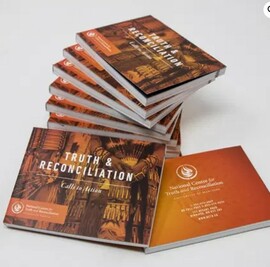
Calls to Action Booklet
$7.35 (available for purchase)
Calls to Action booklets published by the National Centre for Truth and Reconciliation
In this booklet, you will find the TRC’s 10 principles of Reconciliation, the 94 calls to action and the 46 articles of the United Nations Declaration on the Rights of Indigenous Peoples (UNDRIP). These documents are instruments of Reconciliation that should be read and considered together.
The first principle of Reconciliation confirms that UNDRIP is the framework for Reconciliation for all sectors of Canadian society. The other nine principles serve as guides to assist in repairing the damaged relationship between Indigenous and non-Indigenous Peoples in Canada.
(10.2 cm L X 7.6cm H X 1cm W)
Indigenous organizations and purchases of 2,000 or more booklets receive a 10 percent discount. To inquire, please email SHOPNCTR@umanitoba.ca
First Nations, Métis and Inuit (FNMI) student success/parent engagement research and reports (2021)
Research webinar (June 18, 2021) featuring a funded study, Indigenous Parent Involvement in Education and Indigenous Student Success: Examining Definitions and Relationships.
Summary reports shared with permission from the featured study principal investigator and webinar presenter, Dr. Emily Milne.
Edmonton Public Schools MacEwan Indigenous Parent Involvement In Education
Edmonton Public Schools MacEwan Student Success
Indigenous Parent Caregiver Advisory Council Report
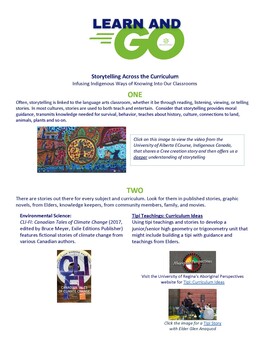
Storytelling Across the Curriculum - Infusing Indigenous Ways of Knowing Into Our Classrooms
This Learn and GO content was curated by Kim Barker-Kay (kim.barker-kay@arpdc.ab.ca) on behalf of Alberta Regional Professional Development Consortia (ARPDC) © 2020
Click on image to download the PDF file which contains numerous links.
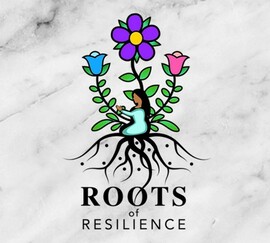
Roots of Resilience Education Foundation is an Indigenous non-profit organization, led by two First Nations women and supported by a board of Elders and Knowledge Keepers.
Our Foundation aims to work collaboratively with community groups, organizations, and service delivery agencies to provide professional learning to increase community awareness and understanding of Indigenous worldview, perspectives and knowledge from an Indigenous cultural lens.
Register for online sessions, and workshops.
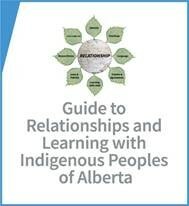
The College of Alberta School Superintendents (CASS) is pleased to announce the release of the Guide to Relationships and Learning with the Indigenous Peoples in Alberta. The Guide was developed through an Indigenous lens led by the voices and teachings of First Nations, Métis and Inuit Elders and Knowledge Keepers from Alberta, and includes the experiences and practices of superintendents, students, and educators.
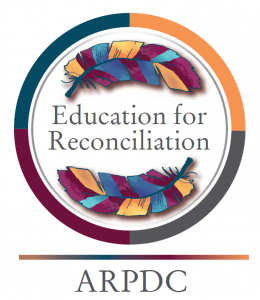
Empowering the Spirit website
Foundational Knowledge Conversation Guide Series
Resources on the Empowering Spirit website were developed by Alberta Regional Professional Development Consortia (ARPDC) as a result of grants from Alberta Education to support implementation.
The Seven Sacred Teachings, also known as the Teachings of the Seven Grandfathers, is a set of teachings on human conduct towards others.
Weaving Ways - Indigenous Ways of Knowing in Classrooms and Schools
The Weaving Ways resource is an introductory guide to support teachers in considering how Indigenous knowledge systems can support a rich experience for students in their classrooms.
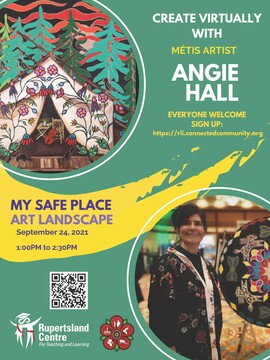
Rupertsland Institute is an affiliate of the Métis Nation of Alberta and holds a triple mandate in education, training and research.
Rupertsland Centre for Teaching and Learning develops comprehensive foundational knowledge resources, engaging lesson plans, meaningful professional development opportunities and authentic classroom learning tools that speak accurately and meaningfully to topics in Métis education.
Rupertsland Education Community Connector (RECC) (events and online learning)
Indigenous Education in Alberta
Alberta Education is committed to improving education outcomes and creating opportunities for First Nations, Métis and Inuit students in Alberta.
Indigenous Insights video series Alberta School Boards Association (ASBA)
Recognizing the multiplicity of nation, voice, community and teachings of Indigenous peoples in Alberta, along with the diversity of experience of school board trustees, the Indigenous Advisory Circle members envisioned a series of videos in which they could provide a foundational level of knowledge upon which Boards could build within the territory where they live and work. The Indigenous Insights series is the result of their vision and commitment to support trustee learning for reconciliation in Alberta.
Walking Together
First Nations, Métis and Inuit Perspectives in Curriculum digital resource.
The Alberta Teachers' Association (ATA) Indigenous Education and Walking Together Stepping Stones Series
Stepping Stones is a publication of the Alberta Teachers’ Association
Walking Together: Education for Reconciliation and is intended to support certificated teachers on their learning journey to meet the First Nations, Métis and Inuit Foundational Knowledge competency in the Teaching Quality Standard.
Education is Our Buffalo
Written by a team of Indigenous writers, this guide is intended to increase awareness of Indigenous history, cultures, languages, worldviews, and contemporary realities.
Moose Hide Campaign STANDING UP AGAINST VIOLENCE Towards Women and Children
The Legacy of Hope Foundation (LHF) is a national Indigenous-led, charitable organization founded in 2000 with the goal of educating and raising awareness about the history and many legacies of the Residential School System. These include the direct and ongoing impacts on First Nation, Métis, and Inuit Survivors, their communities, and their descendants.
UBC’s Residential School History and Dialogue Centre (RSHDC) is a Survivor-centred and trauma informed space, facilitating access to records related to Canada’s Indian Residential School System.
Canadian Geographic Indigenous Peoples Atlas of Canada
National Film Board of Canada- Indigenous Peoples in Canada
Personal acts of reconciliation -10 simple actions you can take to learn more about reconciliation (CBC)
First Contact (series) Aboriginal People’s Television Network (APTN) - 3 episodes
Narrated by host and social justice activist George Stroumboulopoulos, First Contact is a journey that will turn six participants’ lives upside down. Challenging their perceptions and confronting their opinions about a world they never imagined they would see. It is an experience that will change their lives, forever.
First Contact takes six average Canadians, all with strong opinions about Indigenous People, on a unique 28-day journey into Indigenous Canada. Leaving their everyday lives behind the six will travel deep into Winnipeg, Nunavut, Alberta, Northern Ontario, and the coast of BC to visit Indigenous communities.
Indigenous Awareness Canada Online Indigenous Awareness Training
Learn about Canada’s Indigenous People and help non-indigenous Canadians and Indigenous peoples move toward reconciliation.
GoodMinds.com
Indigenous Books for schools and libraries. First Nations, Métis, and Inuit books.
The KAIROS Blanket Exercise
This one-hour participatory workshop will help participants understand how colonization of the land we now know as Canada has impacted the people who lived here long before settlers arrived. Through this exercise participants will explore the nation-to-nation relationship between Indigenous and non-Indigenous peoples in Canada, how this relationship has been damaged over the years, and how they can work toward reconciliation.
http://kairosblanketexercise.org/
St. Albert Public Schools Wisdom and Guidance Committee and the Truth & Reconciliation Parent Series
Hosting a Family Night: Engaging First Nation, Métis and Inuit Families
A Family Night is a time to engage with families of First Nations, Métis and Inuit students who attend schools in Alberta in a respectful, cultural and welcoming way.
A Guide to Taking Your Family to a Powwow for the First Time
About Sharing Circles - Conducting a Sharing Circle and Standards of Presence
Beyond 94 - Truth and Reconciliation Progress in Canada (CBC)
Residential Schools - Why our children need to learn about them (Maclean's article)
Alberta First Nations Information Governance Centre (AFNIGC)
150 Acts of Reconciliation for Canada’s 150
Guide to reconciliation for non-Indigenous Canadians
A special list for Canada 150 — of reconciliation acts any Canadian can do if they are ready to rethink their views about their Indigenous peers.
Colouring it Forward ...more than a colouring book. A series of books and calendars about different nations, and tells the story about Canada’s First Nations people.